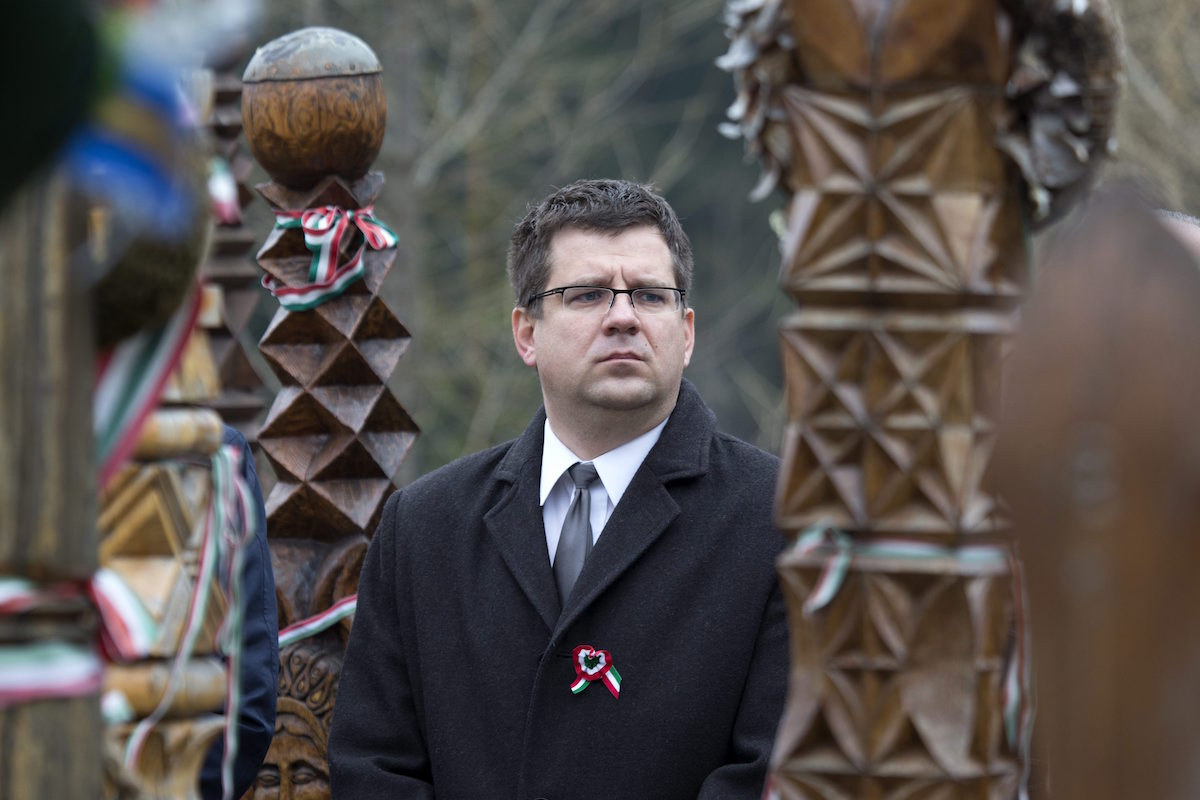Ministers usually avoid investigative reporters. But this one wanted to meet me

The first time I heard the name of Sándor Börcsök was in the autumn of 2015. At that time he was a completely unknown person to me but he was described by one of my sources as a quite influential person with good political connections. Since Börcsök deals with the liquidation of bankrupt companies he immediately caught my attention.
I had previously written articles about how the Orbán government changed the sector of liquidation and I found this topic exciting. The process looked very similar to the distribution of tobacco licenses, which were given to people close to the government. And according to my source, Börcsök looked like one of the big winners of the new system of liquidations.
I first felt that this would be a good story when the management of my former workplace VS.hu started asking questions about my investigation. These questions were not raised by my editors but by people with whom I did not have a direct working relation. Since I did not report to them about my investigation, their questions must have been triggered by my phone calls and emails to governmental institutions which then notified the management through various channels. They did not ask me to drop the inquiries but tried to put pressure by asking me not to rush with the story.
This did not discourage me from collecting information about Börcsök with a focus on his political relations. Unfortunately, I could not go deeper because I had to quit in the spring of 2016. It turned out that the publisher of VS.hu received a huge amount of public money through the foundations of the National Bank of Hungary which was kept hidden from the readers and the journalists working there.
[vimeo id=”208273777″ align=”center”]
When I started working at Direkt36 I discussed with my editors that I would try to continue Börcsök’s story. At that time liquidations became even more interesting, there were more and more news about businessmen with close links to the government buying valuable properties through these procedures.
Since this is a quite complicated topic, I first tried to speak with liquidators who know Börcsök and have knowledge about this market. I became even more intrigued when four-five of my sources confirmed that it was worth investigating the political connections and assignments won by Börcsök. I was told to look for a common link between him and Miklós Seszták, the Minister of Development who happened to be also in charge of liquidations.
I focused my research on a town in the countryside of Hungary where the career of Minister Seszták started and where Börcsök maintains an office. This is how I found out that both men appeared in the same company. Even though this connection seemed interesting, Börcsök and Seszták did not hold positions in these companies at the same time, so my editor told me to continue with my research.
I researched in details the documents of companies linked to both men and I hardly believed my eyes when I finally managed to find a document which contained the signatures of Seszték and Börcsök. This was a clear proof that they had a connection. Even my editor who does not praise often looked happy when I informed him about what I found.
I also found it out that Börcsök is employed by the state liquidation company which is the biggest player in this sector. My investigations showed that the company belonging to the Ministry of Development, led by Seszták, gave the most important assignments to Börcsök. As result, he is in charge of selling properties with the value of billions of forints.
I thought I managed to gather sufficient information to contact the Minister and forwarded my questions to him through his press office. I counted on receiving a reply without real information. Unexpectedly, the press officer of Seszták called me shortly and said that the minister would be happy to answer my questions in person.
The press officer told me in advance that I would not be allowed to use a voice recorder because the minister did not feel comfortable in this sort of situations. That’s why my editor came with me to the meeting in case a witness would be needed later on. We met with Seszták in one of the conference rooms of the Ministry and he did not make an impression of a person who had problems with communication, in fact he was talking in a very confident way.
At the meeting, he started by saying that he appreciated my work as a journalist, I have always quoted his statements correctly and he was therefore ready to speak to me in person. During the whole meeting he tried to play down the significance of his relation to Börcsök. He repeatedly stated that he knew several other liquidators besides him and disputed any closer connection to Börcsök or that he would be outstandingly successful. He did not, however, dispute the facts that I gathered, he only clarified some of my findings.
A few days after the meeting I found a new interesting detail about the relation between Börcsök and Seszták. I wanted to ask Seszták about this, and his press officer offered another personal meeting. Finally, we discussed it over the phone. His attitude made it clear that the story I was working on had special importance to him. And the story is not over yet, I will keep watching Mr. Börcsök’s moves as a liquidator.

